Research Faculty
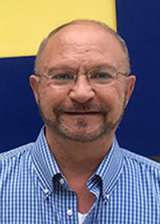
Ronald Brooks, PhD
Associate Professor
Dr. Ronald Brooks is an Associate Professor in the Department of Family Medicine and over the past 20 years has been involved in HIV-related research and in providing training and technical assistance to providers involved in HIV medical care and prevention services. He served as the principal investigator of the Health Resources and Services Administration, Special Projects of National Significance, Evaluation and Technical Assistance Center (ETAC) for the Use of Social Media and Mobile Technology to Improve Engagement, Retention, and Health Outcomes along the HIV Care Continuum Initiative. The ETAC led a national multi-site implementation and evaluation of the ten study sites funded by the initiative. He recently completed an Ending the HIV Epidemic supplement grant centered on developing implementation strategies to improve delivery of pre-exposure prophylaxis (PrEP) for HIV prevention. Dr. Brooks has extensive experience in providing training and technical assistance to multiple health focused entities (e.g., health departments, community-based organizations (CBO), health clinics), and is committed to conducting social and behavioral research that will facilitate the adoption of biomedical HIV prevention strategies such as PrEP.
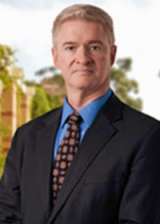
Tom Donohoe, MBA
Emeritus Adjunct Professor
Tom Donohoe is an Emeritus Adjunct Professor in the Department of Family Medicine and was director of the Pacific AIDS Education and Training Center (AETC)-Los Angeles Area, a collaboration among the David Geffen School of Medicine at UCLA, the USC Keck School of Medicine, and Charles R. Drew University of Medicine and Science that was administered through UCLA. Tom worked more than 35 years in HIV-related education and training. His areas of interest include HIV and addiction, HIV and mental health, rapid antiretroviral therapy, and keeping HIV patients in continuous, high-quality medical care.
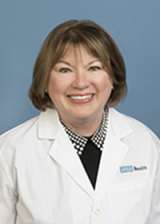
Karen Duvall, MD, MPH
Assistant Adjunct Professor, Department of Family Medicine
Karen Duvall, MD, MPH is assistant adjunct professor in the David Geffen School of Medicine Department of Family Medicine. She was Director of the Preventive Medicine Residency Training Program for 8 years. Recently she helped develop and direct a new Population Health fellowship in the Department. Dr. Duvall is currently involved in developing a 3-year medical school curriculum that will lead directly into the Family Medicine Residency Program. Dr. Duvall received her BA from Johns Hopkins University, M.D. from the University of Arizona and MPH from the UCLA School of Public Health. She completed her residency training in General Preventive Medicine and Public Health at UCLA, followed by a fellowship in clinical nutrition. She is a Fellow of the American College of Preventive Medicine. Dr. Duvall has been Principal Investigator on clinical trials investigating the impact of screening tools in primary care on early identification of COPD. She has also been site PI for a multi-center clinical trial on the evaluation of breast ductal fluid in high risk women. Her research interests have included reducing the risk of breast cancer through preventive measures such as nutrition and healthy lifestyle as well as designing non-invasive detection methods that may identify women at high risk for developing breast cancer. Currently she is involved in research studying the microbiome of the breast.
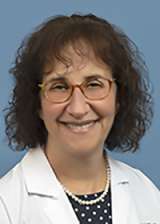
Lillian Gelberg, MD, MSPH
HS Professor
Dr. Lillian Gelberg is a family physician and health services researcher, and professor in the Department of Family Medicine at the David Geffen School of Medicine at UCLA, Department of Health Policy and Management at the UCLA Fielding School of Public Health, and Office of Healthcare Transformation and Innovation at the VA Greater Los Angeles Healthcare System. She is an elected member of the National Academy of Medicine of the National Academies of Sciences, Engineering and Medicine. And she is an elected member of the Association of American Physicians. She is a member of the UCLA Health Jonsson Comprehensive Cancer Center; UCLA Center for Cannabis and Cannabinoids, and Greater Southern California Node of the NIDA Clinical Trials Network.
Dr. Gelberg has been principal investigator or co-investigator on over $121 million of research funding from NIH, PCORI, the CDC, state & local government, and foundations. She has authored over 250 peer-reviewed papers and 16 book chapters, and has mentored over 300 young investigators. She together with Dr. Ronald Andersen developed the Behavioral Model for Vulnerable Populations which has become the leading theoretical framework for understanding access to care for our most marginalized populations.
Dr. Gelberg’s work with diverse, low-income patients and homeless populations, including Veterans and their families, is advancing the national agenda to end homelessness and to promote healthy lifestyle change via integration of health promotion & primary prevention into primary care - to reduce risky substance use and prevent progression to opioid and other substance use disorders, address obesity, and prevent metabolic diseases.
Dr. Gelberg is an alumna of UCLA (BA) and UCLA Fielding School of Public Health (MSPH), Harvard Medical School (MD), Montefiore Hospital in New York (family medicine residency), Robert Wood Johnson Foundation-UCLA-VA Clinical Scholars Program (health services research fellowship), and Robert Wood Johnson Foundation-UCLA Generalist Physician Faculty Scholars Program (faculty development award). Her work has been funded by the National Institute on Drug Abuse, NIDA Clinical Trials Network, Patient-Centered Outcomes Research Institute, California Tobacco Related Disease Research Program, VA HSR&D, National Institute on Minority Health and Health Disparities, National Cancer Institute, National Institute of Diabetes and Digestive and Kidney Diseases, National Institute on Alcohol Abuse and Alcoholism, National Institute of Mental Health, and others. She has served on numerous editorial boards and a broad range of NIH, NIDA, PCORI and academic committees. She has been awarded the 2009 Curtis Hames Research Award and the 2023 NAPCRG Wood International Award for lifetime contributions to primary care research.

Geoffrey Gusoff MD, MBA, MSPH, MTS
Dr. Gusoff is an HS Assistant Clinical Professor in the Department of Family Medicine. Dr. Gusoff obtained a BA degree in Public Policy and Religious Studies from Brown University, a Master of Theological Studies in Social Ethics from Boston College, an MD/MBA from the Perelman School of Medicine and the The Wharton School at the University of Pennsylvania, and an MSPH from the UCLA Fielding School of Public Health. He completed Family Medicine Residency clinical training at the University of Pennsylvania. Dr. Geoff Gusoff is a board-certified family physician and completed his post-doctoral research fellowship with the National Clinician Scholars Program (NCSP) at UCLA. His work focuses on the social and structural determinants of health, including a focus on the health impacts of innovative housing and business ownership models. He is particularly interested in the ways that home care cooperatives - businesses owned and controlled by home health aides - impact job quality and care quality in the home care industry, which is currently in the midst of a growing workforce crisis. Dr. Gusoff's research is funded by the Cornell University Center for Applied Research on Work (CAROW). A Pisacano Scholarship for Family Medicine Leadership recipient, Dr. Gusoff also teaches and mentors residents.
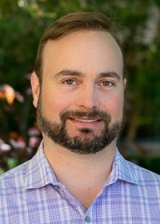
Timothy McCajor Hall, MD, PhD
Dr. Hall is a Clinical Instructor and assists CBAM with it's research and treatment services. He is a licensed psychiatrist with a PhD in psychological anthropology. His current research efforts explore how the aspects of sexual identity mediate risk behavior or accessibility to HIV prevention interventions. He also provides clinical care to patients at multiple UCLA outpatient clinics. Dr. Hall obtained his PhD in psychological anthropology and his MD from UC San Diego and completed a postdoctoral fellowship with CBAM.

Ann M. Hernandez MD, MSPH, MPH
Dr. Hernandez is an HS Assistant Professor in the Department of Family Medicine. She completed her clinical training in the UCLA Family Medicine Residency Program and her MD degree at UCLA School of Medicine. While at DGSOM, she completed an MPH in the UCLA Fielding School of Public Health and was part of the UCLA Program in Medical Education in Leadership and Advocacy (PRIME-LA).
Dr. Hernandez was honored as a DGSOM 2023-2025 Bruin Scholar for her commitment to research that advances the heath and health care of diverse patient populations. This prestigious award funds her current research. Dr. Hernandez is also the recipient of a UCLA LIFT-UP pilot research grant to explore doctor-patient decision-making about new pharmacologic treatments (GLP-1 agonists and SGLT-2 inhibitors) among Spanish-speaking patients with diabetes. Her research interests are telehealth use among marginalized populations, Latinx health and healthcare, pathway programs, and health equity. She completed a 2-year UCLA T32 NRSA Primary Care & Health Services Research Fellowship and a Master of Science in Health Policy and Management at UCLA.
Dr. Hernandez mentors medical students and residents and serves as a co-director for the Department's pathway program for high school students in Van Nuys.
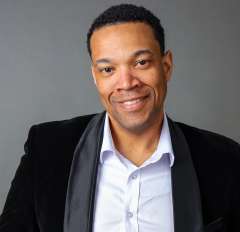
Micah Johnson, PhD
Dr. Micah Johnson, PhD, a medical sociologist, received his doctorate degree from the University of Florida. His research and leadership made significant contributions to understanding trauma and behavioral health outcomes. His NIH-funded research focuses on advancing projects on stress, addiction, and violence. Funded by a $907,742 grant from NIH, Dr. Johnson is conducting a study titled Examining the Stress Process of Recovery and Engagement in Substances and Service Outcomes (ESPRESSO). The ESPRESSO project quantitatively and qualitatively investigates the mechanisms by which stress impacts drug use trajectories and treatment services among adolescents involved in the justice system. The study examines the factors that can affect risk, recovery capital, access to services, and the quality of services. Beyond his research, Dr. Johnson is deeply committed to mentorship. He has founded several innovative research education programs, the Substance Misuse and Addiction Research Traineeship (SMART), which specifically trains undergraduate students in addiction research. SMART has trained over 100 students, many of whom are on track to earn MDs and graduate degrees at dozens of universities across the country. He also leads the Scientific Training in Addiction Research Techniques (START) Program, a comprehensive research education program dedicated to supporting junior scholars. START specifically prepares investigators to access, analyze, and disseminate data from the Adolescent Brain Cognitive Development (ABCD) study at University of Vermont. His dedication to mentoring future generations of scholars reflects his passion for education and workforce development. His teaching interests include research methods and behavioral health services delivery. He also founded the Community and Art-based Research, Dissemination, and Interventions (CARDI) initiative, enhancing community health through performance interventions and creative outreach.
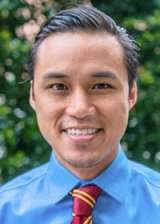
Michael J. Li, PhD
HS Assistant Professor
Dr. Michael Li is an Assistant Professor-in-Residence in the UCLA Department of Family Medicine, and is a member of the Center for Behavioral and Addiction Medicine (CBAM) and the Center for HIV Identification, Prevention and Treatment Services. They investigate behavioral and biomedical interventions for reducing substance use and improving HIV treatment and prevention. Dr. Li specializes in community-responsive strategies to address the needs of racially diverse sexual minority and gender minority communities, as well as global populations impacted by substance use and HIV. Dr. Li received a BS in biological sciences from UC Irvine, a Master of Public Health from Cal State Fullerton, and a PhD in Preventive Medicine from the University of Southern California. They also trained as a postdoctoral fellow at UCLA CBAM prior to becoming faculty.
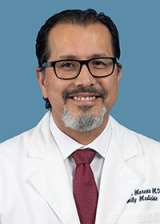
Gerardo Moreno, MD, MSHS
Dr. Gerardo Moreno is Professor and Chair of the Department of Family Medicine, and an elected member of the National Academy of Medicine. He serves on the Board of Directors for the American Board of Family Medicine (ABFM, Chair 2024-2025) and on NIH Study Section NIA-AGCD3 (Career Development for Clinicians/Health Professionals Review Committee) (formerly Clinical Aging study section NIA-C). Dr. Moreno earned his MD at the UCLA School of Medicine, a Master of Science in Health Services from the UCLA School of Public Health and completed a post-doctoral research fellowship in the Robert Wood Johnson (RWJ) Foundation Clinical Scholars Program at UCLA. He is Director of UCLA PRIME-LA (Program in Medical Education) which focuses on Leadership and Advocacy for underserved communities. He is a clinician investigator and his current research focuses on studying effective healthcare delivery in communities for uninsured vulnerable populations including undocumented residents and older adults. His areas of expertise include diabetes in older adults, the evaluation of health system and community level interventions for vulnerable populations, physician workforce diversity, social and structural determinants of health, language-based disparities in healthcare, and medical education programs. Dr. Moreno has published clinical guidelines on diabetes among older adults and studies that have increased our understanding of health disparities and the social determinants of health, and has published on other important issues addressing physician workforce diversity, family medicine, and medical education. Dr. Moreno has a continuity clinic and trains family medicine residents and UCLA medical students. Dr. Moreno is principal investigator of a multi-year evaluation of a novel primary care coverage program for low-income uninsured and undocumented patients receiving care in 23 community health centers across 21 California counties. He served as an associate editor for the Annals of Family Medicine and now serves on the journal’s Board of Directors.
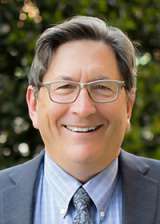
Steven Shoptaw, PhD
Dr. Shoptaw is a licensed psychologist and Professor in both the Department of Family Medicine and the Department of Psychiatry and Biobehavioral Sciences at UCLA and serves as the Vice Chair for Research in the Department of Family Medicine. He is also Executive Director of the Center for Behavioral & Addiction Medicine (CBAM). For more than 25 years Dr. Shoptaw has conducted a series of clinical studies in community clinic settings, primarily on topics that involve development and testing of medical and behavioral interventions to treat substance abuse and to prevent the spread of HIV. He works with a broad spectrum of partners from university, government and community settings. In addition, he maintains a regular caseload of patients and provides training and mentorship to students and postdoctoral fellows. In his career, he has been Principal or Co-Investigator of more than 40 research projects, most funded by the National Institutes of Health. Dr. Shoptaw's experiences have shaped his agenda in the Department of Family Medicine to integrating addiction medicine into primary care settings, particularly those clinics that serve low-income patients.
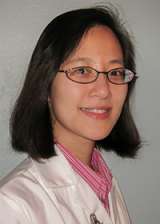
Derjung Mimi Tarn, MD, PhD
Derjung Mimi Tarn, MD, PhD is Professor of Family Medicine at the David Geffen School of Medicine at UCLA and a practicing family physician providing care in both outpatient and inpatient settings. She is an internationally recognized researcher with a deep commitment to advancing primary care through impactful, patient-centered research. Dr. Tarn’s current research includes promoting the use of Medicare Annual Wellness Visits in practices around the country to increase preventive health services among older adults, and leading clinical trials aimed at optimizing patient care in primary care settings. She is also widely recognized for her expertise in medication adherence and physician-patient communication. Dr. Tarn has expertise with both qualitative and quantitative research methods, and has used audio recordings of office visits, semi-structured interviews, focus groups, and surveys to examine how care is delivered and how it can be improved. Her research is supported by the National Institutes of Health and the Patient-Centered Outcomes Research Institute (PCORI). Dr. Tarn is a recipient of the Family Practice Excellence in Research Award from the California Academy of Family Physicians and was recognized by Super Doctors® Southern California in 2024-2025.
Beyond her research, Dr. Tarn has served in key leadership roles, including as Chair of the University of California systemwide University Committee on Library and Scholarly Communication (UCOLASC) and as Parliamentarian of the UCLA Academic Senate. Dr. Tarn earned B.S. and M.S. degrees in Biological Sciences from Stanford University, an M.D. from New York Medical College, and a Ph.D. in Health Services from UCLA. She completed advanced research training through the National Research Service Award (NRSA) Primary Care Research Fellowship and the UCLA Specialty Training and Advanced Research (STAR) Program.
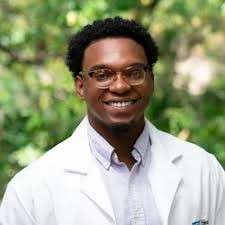
Frederick Ferguson, MD, MSPH
Frederick Ferguson, MD, MS is a HS Assistant Clinical Professor in the Department of Family Medicine at the David Geffen School of Medicine at UCLA. He completed his medical degree through the UCLA/Charles R. Drew Medical Education Program and his residency in Family Medicine at UCLA. Dr. Ferguson is also a recent graduate of the National Clinician Scholars Program (NCSP) at UCLA, where his research focused on health services, healthcare access, and institutional trust among structurally marginalized populations. His work includes investigations into cardiovascular risk and the impact of mission-oriented training programs on physician practice in medically underserved settings. Clinically, he provides primary care at our UCLA safety-net family health Mid Valley Comprehensive Health Center and mentors medical students and residents. He was honored as a DGSOM 2025-2027 Bruin Scholar for her commitment to research that advances the heath and health care of communities and patient populations.
Emeritus Research Faculty

Rose Maly, MD, MSPH
Dr. Rose C. Maly is Professor Emeritus of Family Medicine. Dr. Maly received her BS in Biological Sciences and BA in Philosophy from UC Irvine. She received her MD from the UC Irvine College of Medicine and an MSPH from the UCLA School of Public Health. Dr. Maly did her residency in Family Medicine at UCLA, followed by a fellowship in Geriatric Medicine at UCLA. Her honors include the New Investigator Award from the American Geriatrics Society and appointments as a Robert Wood Johnson Foundation Generalist Physician Faculty Scholar and as an American Cancer Society Research Scholar for which she was the first to receive a research grant in excess of $2 million dollars from the American Cancer Society. Her research focus is on patient-physician communication and its impact on health-related quality of life and functioning, cancer survivorship, as well as quality of care. She has used a new diagnosis of breast cancer as a paradigm to highlight elements of patient-physician communication that are key in impacting these outcomes during a particularly vulnerable period in a patient's illness experience. Dr. Maly passionately believes that the patient-physician relationship itself is one of the most healing aspects of medical practice. She has particularly focused her research on special patient populations including the medically underserved, ethnic minorities, and the elderly that may suffer disproportionately from the consequences of poor patient-physician communication. Dr. Maly has a continuity practice in Geriatric Medicine at UCLA and teaches Doctoring courses for medical students which target topics not typically covered in a traditional medical school curriculum, including such areas as medical ethics, health care disparities, complementary and alternative medicine, and hospice and palliative care that are nonetheless critical to excellence and humanity in the practice of medicine.
